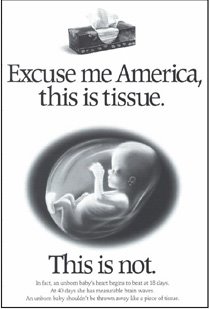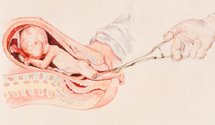Defending Life: A Moral and Legal Case Against Abortion Choice
 Yesterday I received in the mail my overdue copy of Francis Beckwith’s newest book entitled:
Yesterday I received in the mail my overdue copy of Francis Beckwith’s newest book entitled: Defending Life: A Moral and Legal Case Against Abortion Choice
Francis J. Beckwith, Cambridge University Press, 2007, 312 pages.
Today I noticed that Scott Klusendorf of LTI will be blogging his way through this book.
What’s so special about this book? When I first heard about the book a few months ago, I heard it described as being the most thorough and powerful argument against abortion ever written. Here’s part of what Scott says:
This is a book for careful thinkers. Though Frank believes he successfully refutes his critics (and I agree he does), he treats them charitably and takes their arguments seriously. He even thanks them up front (in the acknowledgments section) for helping him refine his own case. Among those thanked are David Boonin, Dean Stretton, Michael Tooley, and even Peter Singer. Classy.
Beckwith’s primary purpose is to provide a thorough defense of the pro-life position and its grounding in the “substance view” of human persons—a view he claims best explains human equality. He writes: “This book is, in a sense, then, not really a book about abortion, but rather, a book about human equality.” Frank contends that the larger metaphysical question—who are we?—should be answered by enlarging our definition of the human family to include the unborn. His secondary purpose is to examine the relationship between abortion and law, politics, and public discourse.
The pro-life argument Frank defends can be outlined as follows:
1. The unborn entity, from the moment of conception, is a full-fledged member of the human community.
2. It is prima facie morally wrong to kill any member of that community.
3. Every successful abortion kills an unborn entity, a full-fledged member of the human community.
4. Therefore, every successful abortion is prima facie morally wrong.
By “full-fledged member of the human community” (premise #1), Frank means that just like you and I have a natural right to life, so do the unborn. Thus, depriving them of that life requires the same strict justification needed for killing a 10-year old or any other human being. Note that Frank is not arguing we can never take unborn human life, only that it’s prima facie wrong to do so. That last point is a key distinction, one often missed by some abortion-advocates who insist pro-lifers are inconsistent for opposing elective abortion but not opposing the death penalty, the killing of animals, or war. In this case, the abortion-advocate is attacking a straw man: The pro-life position is not that it’s always wrong to take human life. Our view is that it’s always wrong to take human life without justification, and we believe (for good reason) that elective abortion does just that.
The book is divided into three parts. Part 1 deals with moral reasoning, the law, and politics. Part 2 is the core of Frank’s case for the pro-life view, which includes both the scientific and philosophic considerations. Part 3 takes on cloning and embryonic stem-cell research.
The thrust of the text is philosophical and jurisprudential rather than religious. In each case, the arguments presented pass the test of public reason. That’s not because he thinks theology doesn’t count as real knowledge (indeed, he argues elsewhere it does). Rather, he’s cutting-off secular critics who unjustly dismiss pro-life arguments with the wand of "faith"--which they define as non-rational and subjective.
For those who don’t want to wade through the entire book, you now have the option of following Scott’s postings.
Labels: pro-life apologetics


























1 Comments:
Peace of Jesus
My name is Inaldo Cardoso, I am a catholic physical educator, but I would like to introduce myself as a catholic amateur writer. Recently, I wrote and registered, in Portuguese, a book , a Christian novel with a very strong and clear position against abortion. And I would like to know if it might be possible to exist some interest of you in knowing this writing which is unpublished yet. Maybe, through it, we could work together against abortion in case you find out some utility for my book in your country.
Please, if there isns’t any way you to help me, I would like to ask you, if it is possible, you to indicate me some institution which I could talk about this subject. I also would like to say that my wish of seen the message against abortion and specially the message of Jesus touching people’s heart isn’t comparable to any financial objective. So, for that matter, I would give up any profit in favour of your projects against abortion.
Respectfully
Inaldo Cardoso
Email: docardoso2000@yahoo.com
Post a Comment
<< Home